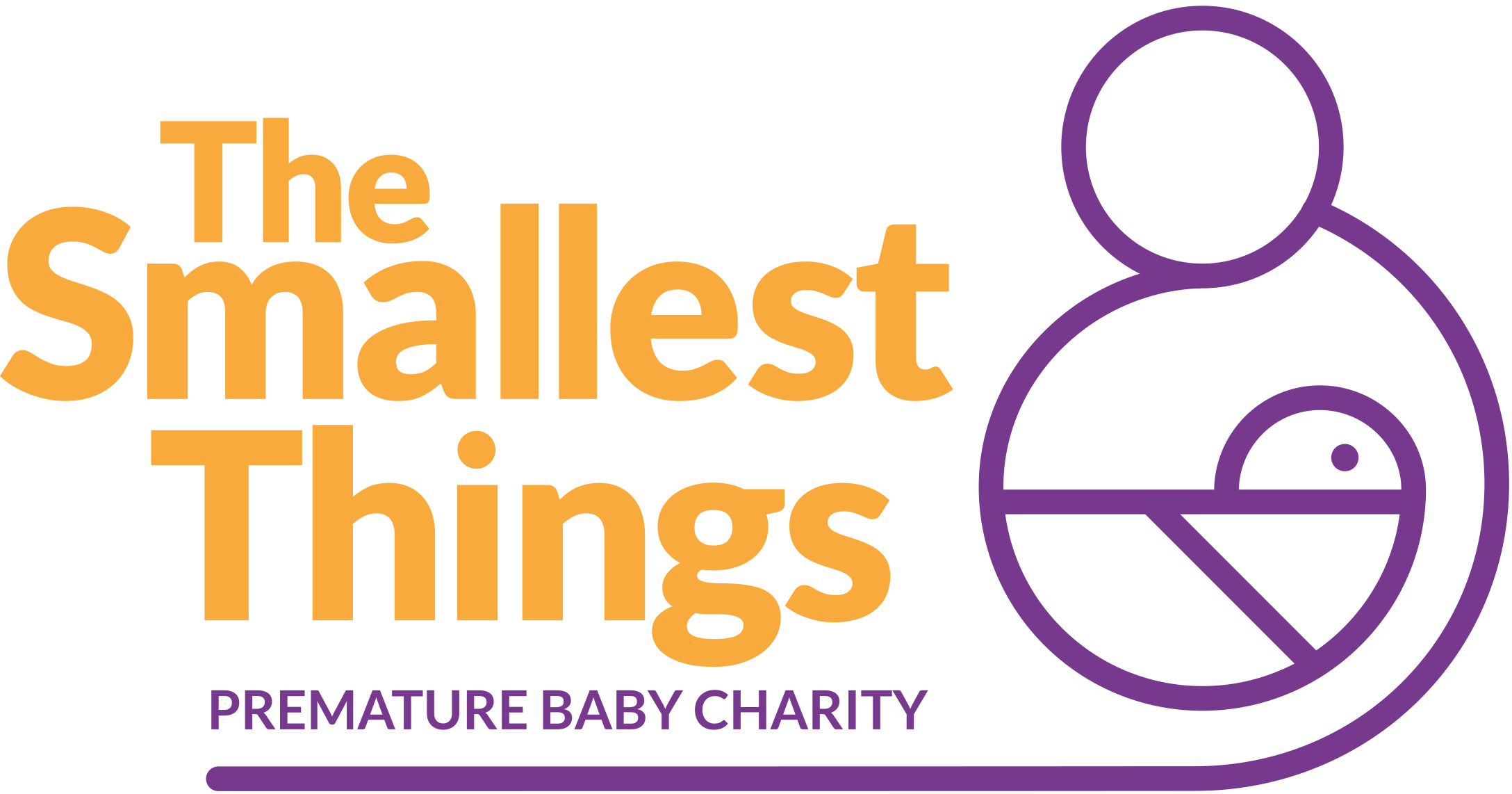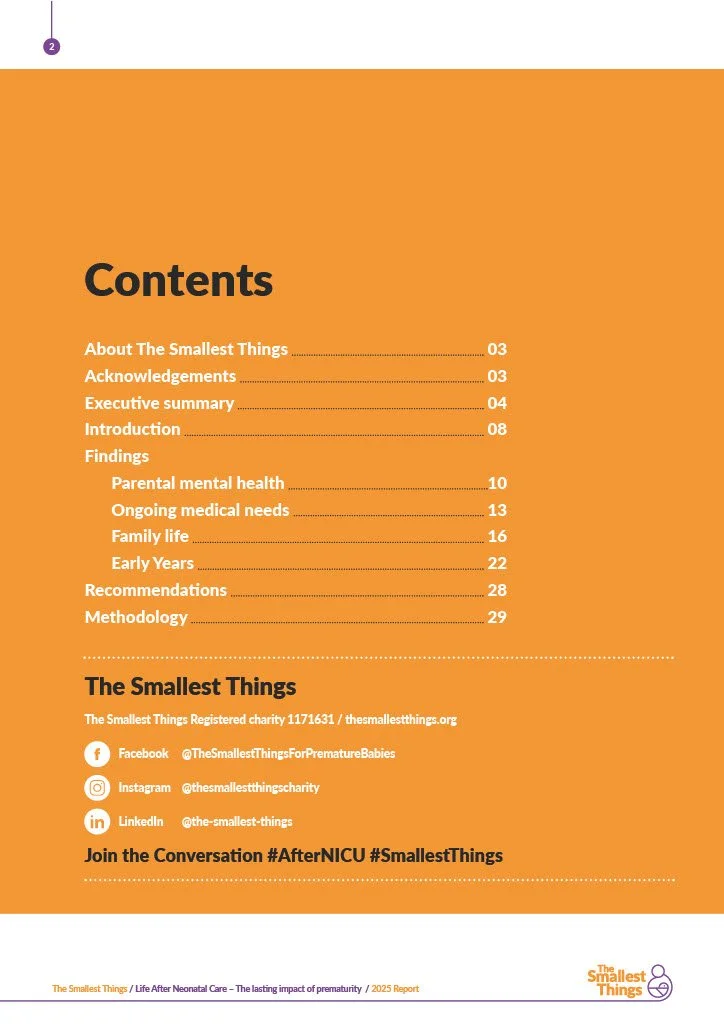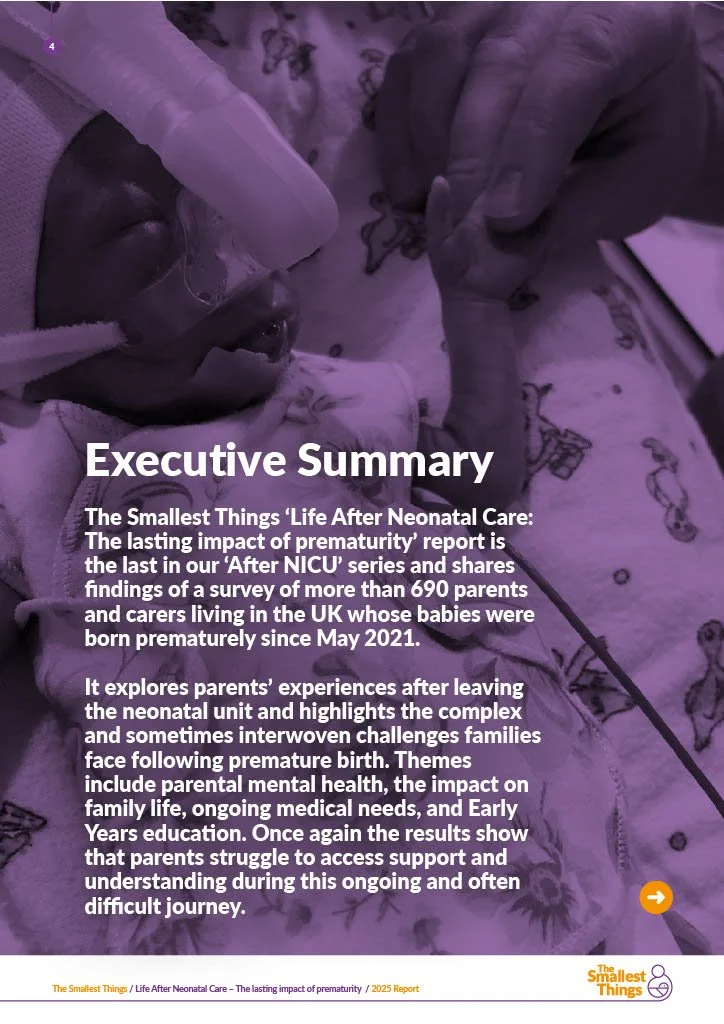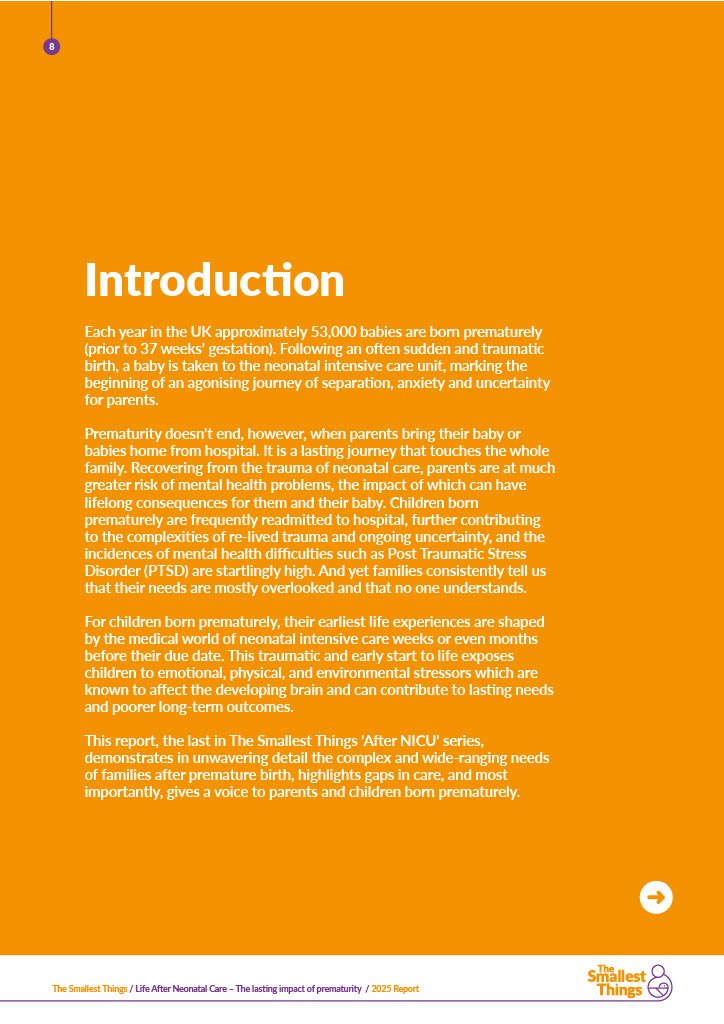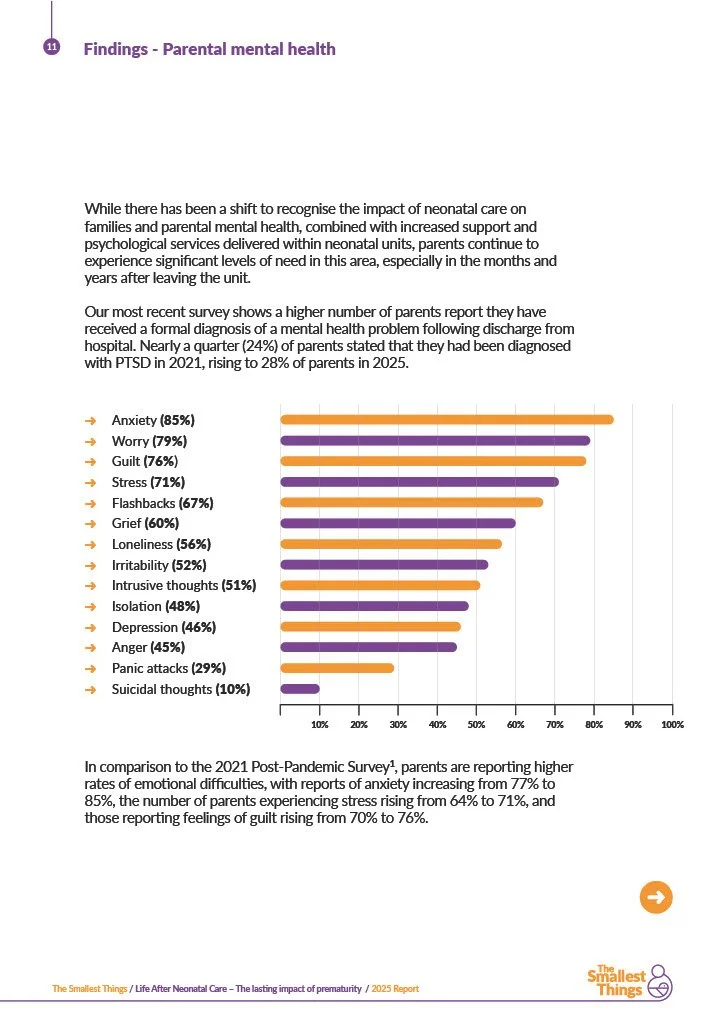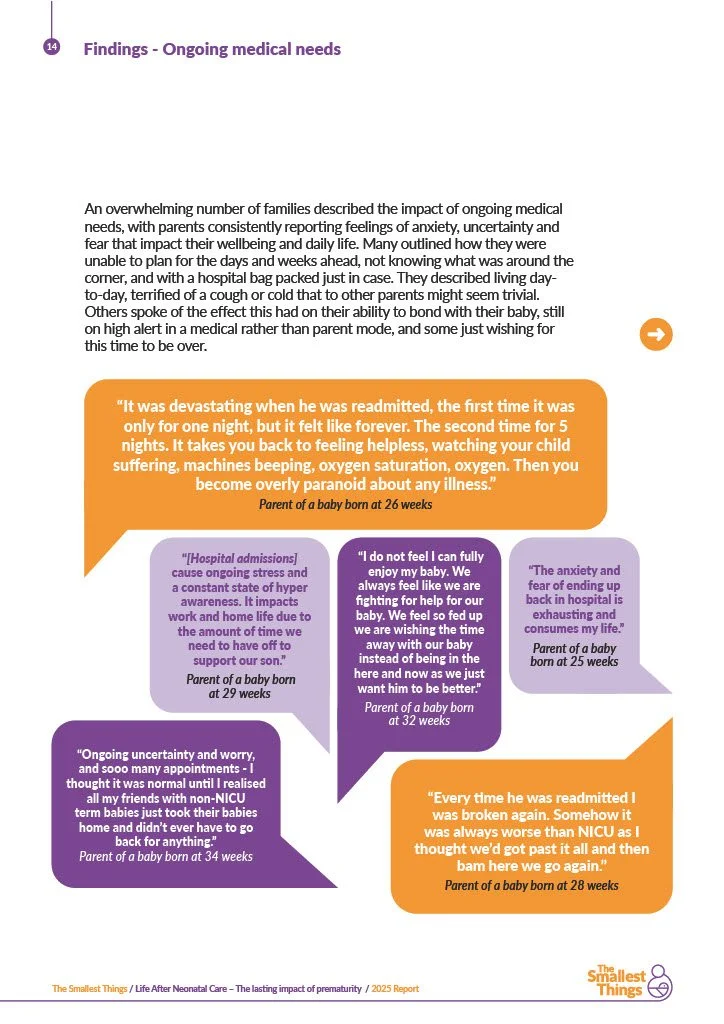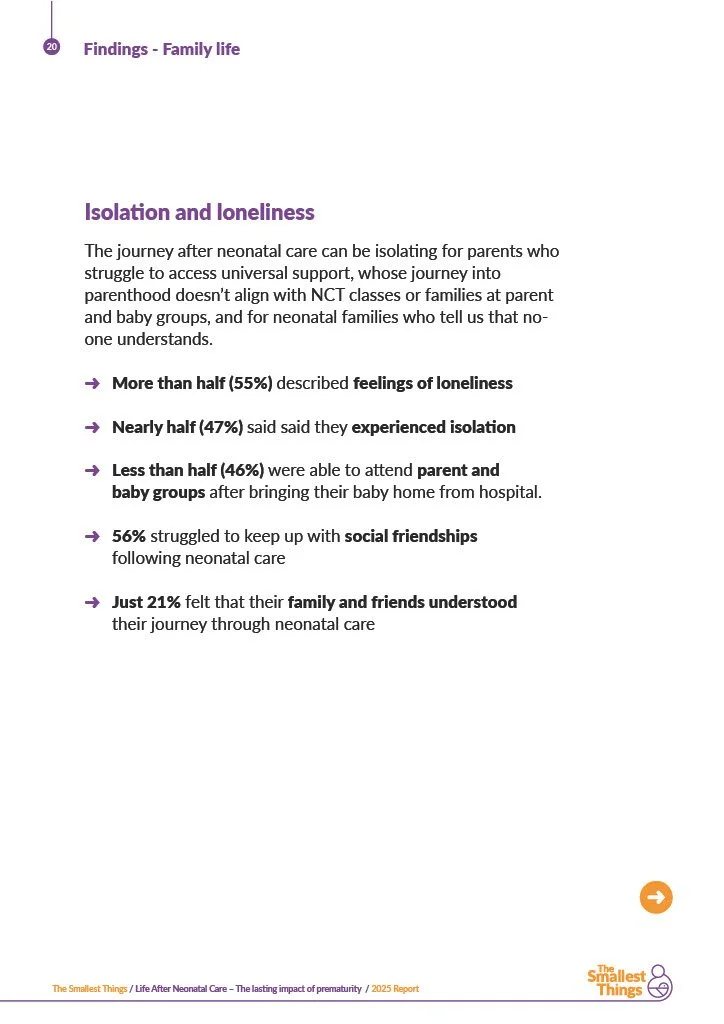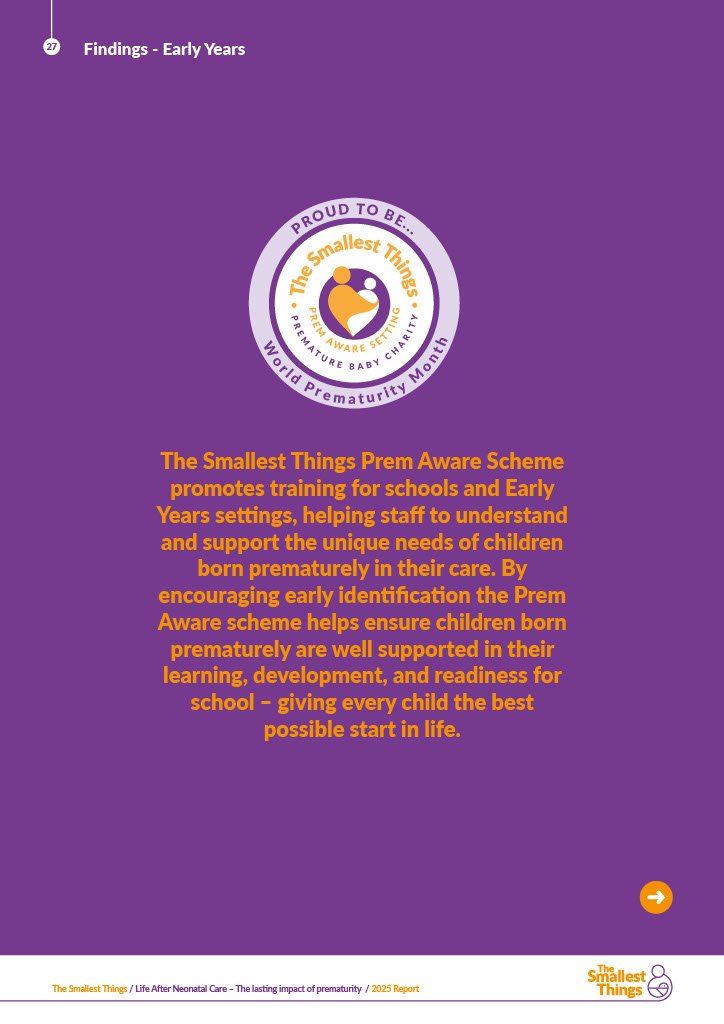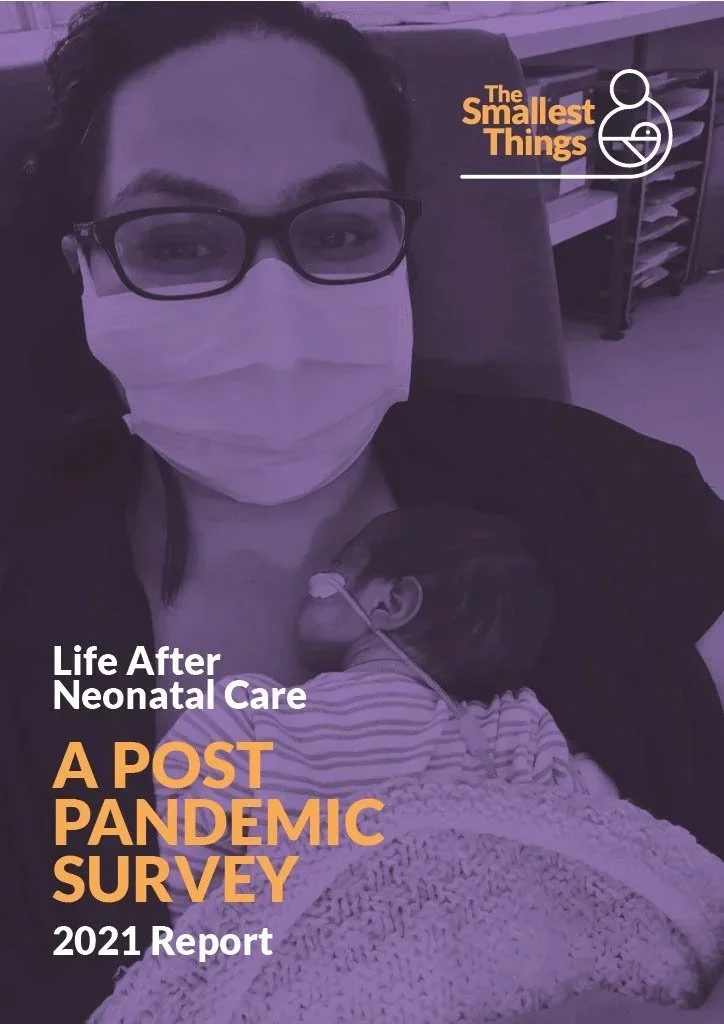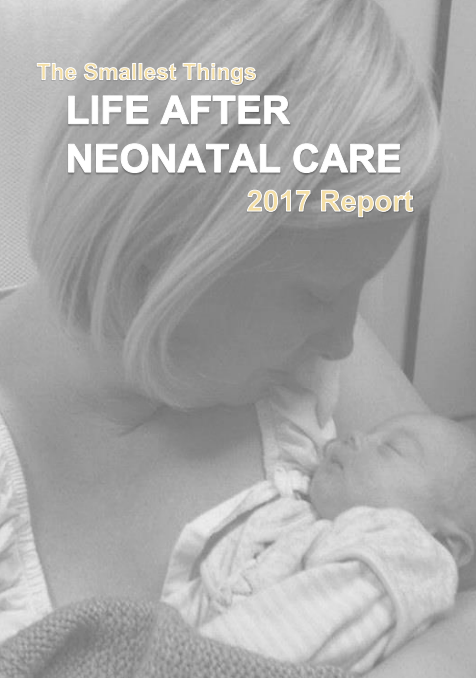Released on World Prematurity Day 2025, The Smallest Things’ latest research reveals the shocking impact of premature birth on mental health, family life and education.
The Smallest Things Life After Neonatal Care Report 2025: The lasting impact of prematurity is the third in the charity’s series of deep dives into the realities of the neonatal journey. It shares the findings of a survey of more than 690 parents and carers of babies born prematurely since May 2021 (the year of our last After NICU report).
It explores parents’ experiences after leaving the neonatal unit and highlights the complex and sometimes interwoven challenges families face following premature birth. Themes include parental mental health, the impact on family life, ongoing medical needs, and Early Years education. Once again the results show that parents struggle to access support and understanding during this ongoing and often difficult journey.
90% say the journey through neonatal care lasts long after bringing your baby home from hospital
Summary of findings:
Parental mental health
Parents reported high levels of anxiety and worry in the months and years after leaving the neonatal unit. More than a quarter (28%) stated that they had been formally diagnosed with post traumatic stress disorder (PTSD), with many more sharing that they had experienced flashbacks to their time in neonatal care alongside other distressing emotions.
➜ Anxiety (85%)
➜ Worry (79%)
➜ Guilt (76%)
➜ Flashbacks (67%)
➜ Grief (60%)
➜ Loneliness (56%)
➜ Intrusive thoughts (51%)
Ongoing medical needs
More than half of parents reported that their baby was readmitted to hospital after leaving neonatal care. Many more described the impact that frequent appointments and ongoing medical needs have on family life, employment and emotional wellbeing, and while families struggle with ongoing medical appointments and uncertainty they told us that no one understands their needs.
➜ Only 1 in 5 agree with the statement ‘My GP understands mine and my baby/babies’ needs’.
➜ Just over a third of parents (35%) feel their Health Visitor understands their and their babies’ needs.
“Every time he was readmitted I was broken again. Somehow it was always worse than NICU as I thought we’d got past it all and then bam here we go again.”
Family life
The day-to-day uncertainty faced by parents and children born prematurely after neonatal care has a significant impact across all areas of family life, often leaving parents feeling isolated and alone and struggling with work and finances.
➜ More than half (56%) struggle to keep up with social friendships following neonatal care.
➜ Just 21% feel their family and friends understand their journey through neonatal care.
➜ 60% of parents say having a baby born prematurely affects their financial circumstances.
➜ More than 1 in 10 parents are unable to return to work.
Early Years
➜ 78% of parents worry about the long-term outcomes for their baby born prematurely.
➜ Less than half (46%) are able to attend parent and baby groups after bringing their baby home from hospital.
➜ More than half of parents (53%) do not feel staff at their child’s childcare or nursery setting understand the learning or development needs children born prematurely may have.
“I really struggled with flashbacks and PTSD symptoms around the year mark but no support was available and I was just left to cope with it. It is such an isolating experience and leaving us bereft of any support is cruel.”
Conclusions
Prematurity doesn’t end when parents bring their baby or babies home from hospital. It is a lasting journey that touches the whole family. Recovering from the trauma of neonatal care, parents are at much greater risk of mental health problems, the impact of which can have lifelong consequences for them and their baby. Children born prematurely are frequently readmitted to hospital, further contributing to the complexities of re-lived trauma and ongoing uncertainty, and the incidences of mental health difficulties such as Post Traumatic Stress Disorder (PTSD) are startlingly high. And yet families consistently tell us that their needs are mostly overlooked and that no one understands.
The report, the last in The Smallest Things ‘After NICU’ series, demonstrates in unwavering detail the complex and wide-ranging needs of families after premature birth, highlights gaps in care, and most importantly, gives a voice to parents and children born prematurely.
Recommendations
Introduce new post-NICU wellbeing checks
Establish a 6-week and 6-month GP ‘After NICU’ wellbeing check for parents, helping to identify mental health needs early and ensuring timely access to appropriate psychological support.
Strengthen continuity of care
Strengthen pathways between hospital, outreach, health visiting, Early Years, and follow-up services to ensure smooth transitions between services and appropriate sharing of information. No parent should face the ‘cliff edge’ of losing vital support and connection.
Embed neonatal support in universal services
Ensure there is a dedicated and trained Neonatal Lead in every health visiting team. Health visitors are uniquely placed to support families and children born prematurely: from supporting families through illness and repeated admissions to hospital, to supporting Early Years development and readiness for school
Give every child born prematurely the best start in life
The needs of neonatal parents and children born prematurely must be embedded within Early Years programmes and family support spaces, such as Family Hubs and the UK Government’s Best Start in Life programme, ensuring families have a single, accessible point of support where they can receive timely help alongside other neonatal families.
Make all schools and settings Prem Aware
All education and Early Years settings should become Prem Aware, ensuring staff understand and can support the specific developmental and learning needs of children born prematurely. Parents should be encouraged and supported to share information about their child’s premature birth with Early Years and school staff, helping to build understanding and continuity of support.
Download, read and share the full Life After Neonatal Care Report 2025: The lasting impact of prematurity.
Join the conversation at #AfterNICU
